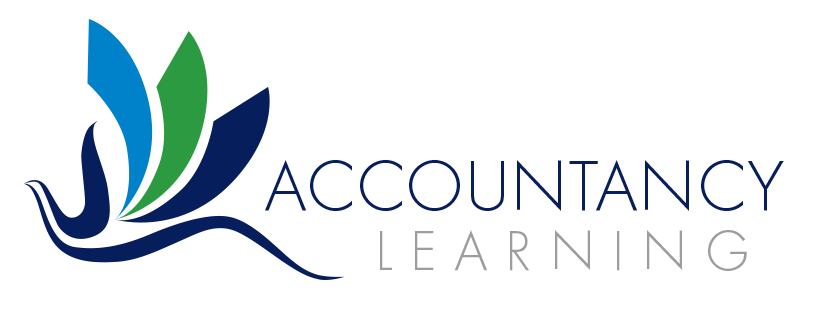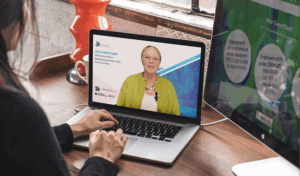Navigating Your Path as an Accounting Graduate: Tips and Advice
Embarking on a career in accounting can be both exciting and daunting, especially if you’re fresh out of education, or looking to change your career. As someone aspiring to enter the world of accountancy, it’s essential to know how to position yourself effectively to potential employers. Let’s address a common concern for many accounting students and graduates, using insights from a question recently received from a student currently studying AAT Accounting Level 2, and put to our experts Victoria Longstaff and Jenna Mayne at Accountancy Learning.
The dilemma: “I have no experience, but I’m currently studying AAT accounting level 2. What do you think will help me?”
Leverage Your Qualifications
When you lack professional experience, your qualifications should take centre stage on your CV. List your educational achievements and any relevant coursework first. This not only highlights your commitment to the field but also shows that you are actively working towards acquiring the necessary knowledge and skills.
Highlighting Transferable Skills
If you don’t have direct accounting experience, think about the transferable skills you’ve gained from other roles. For instance:
- Customer Service: Working in retail often involves customer interaction, which can translate into client communication in accounting.
- Conflict Resolution: Handling difficult situations in previous jobs can show your ability to manage disputes or complex tax issues.
- Money Management: Any role involving cash handling or financial transactions is relevant.
- Computer Skills: Familiarity with systems for stock management or sales can indicate your capability to handle accounting software.
Real-World Examples
Consider practical examples from diverse jobs:
- Retail: Experience with refunds, using point-of-sale systems, and managing inventory.
- Factory Work: Skills in checking stock levels, counting items, and managing deliveries.
- Home Management: Budgeting for your family, organising schedules, and making appointments.
These examples demonstrate to employers that you possess the foundational skills necessary for an accounting role.
Utilising Free Resources
Take advantage of free resources to bolster your resume:
- AAT Portal: Access job listings and career advice tailored to accounting students.
- National Career Service: Get guidance on structuring your CV and writing a compelling cover letter.
Additionally, consider completing online certifications relevant to accounting software, such as Xero or QuickBooks, which can enhance your employability.
Crafting a Strong Cover Letter
Your cover letter is your opportunity to position your CV and make a personal appeal to employers. Here’s how to make it effective:
- Summarise Your Strengths: Briefly highlight your qualifications and key transferable skills.
- Explain Gaps: If you lack certain experiences, explain your willingness to learn and your proactive steps to gain relevant knowledge.
- Match Job Specifications: Tailor your cover letter to the job description, emphasising skills and qualifications that match their requirements.
Additional Tips for Success
- Tailor Your CV: Customise your CV for each job application by highlighting relevant skills and experiences that match the job description. This includes using specific keywords mentioned in the job posting to pass through automated screening systems.
- Showcase Achievements: Emphasise your accomplishments with specific examples of how you contributed to previous roles. Highlighting tangible results, such as increased sales or successful project completions, makes a strong impact.
- Use Bullet Points: Structure your CV using clear headings and bullet points to make it easy to read. Avoid long paragraphs, as hiring managers often skim through CVs quickly to identify key information.
- Proofread Carefully: Ensure your CV is free of spelling and grammatical errors. Have a friend or family member review it to catch any mistakes you might have missed, demonstrating your attention to detail and professionalism.
- Include Relevant Keywords: Many companies use software to scan CVs for keywords. Review the job description to identify and incorporate these keywords into your CV, ensuring it gets noticed by the automated systems.
- Avoid Personal Information: Do not include photographs, personal details like marital status or age, as they can introduce bias. Focus on your professional qualifications and experiences instead.
- Update Regularly: Keep your CV current by adding new skills, experiences, and achievements as they occur. This makes it easier to apply for jobs promptly without needing to overhaul your CV each time.
- Be Honest: Never lie about your qualifications or experiences. Employers will verify your background, and dishonesty can lead to disqualification or termination if discovered later.
- Don’t Include Irrelevant Information: Keep your CV focused on information relevant to the job you are applying for. Avoid adding unnecessary details that do not contribute to your suitability for the position.
Final Thoughts
Starting a career in accounting without experience is challenging, but not impossible. By strategically highlighting your qualifications, leveraging transferable skills, and utilising available resources, you can make a compelling case to potential employers. Remember, every step you take towards improving your CV and cover letter brings you closer to landing that first job. Stay persistent, be proactive, and your efforts will eventually pay off.
Useful links and further reading from this article:
Careers advice – job profiles, information and resources | National Careers Service
FAQ Articles Archive – Accountancy Learning
For further guidance and personalised advice, feel free to reach out to Accountancy Learning. We’re here to support you on your journey to becoming a successful accountant.




